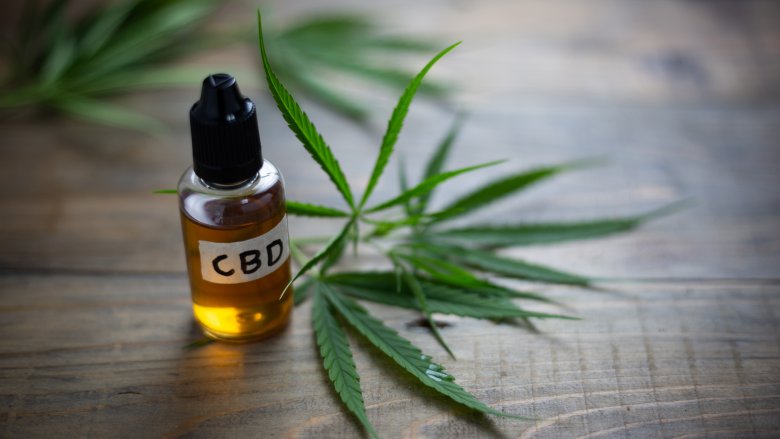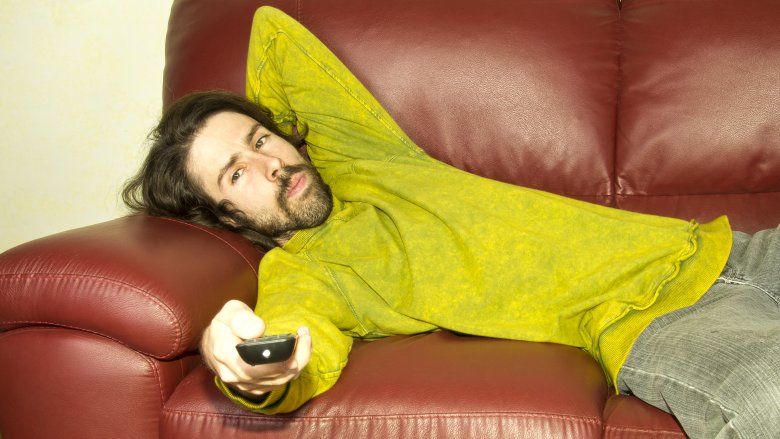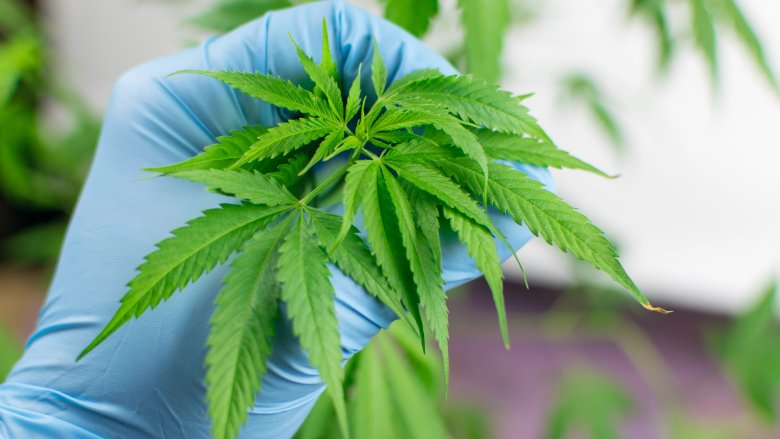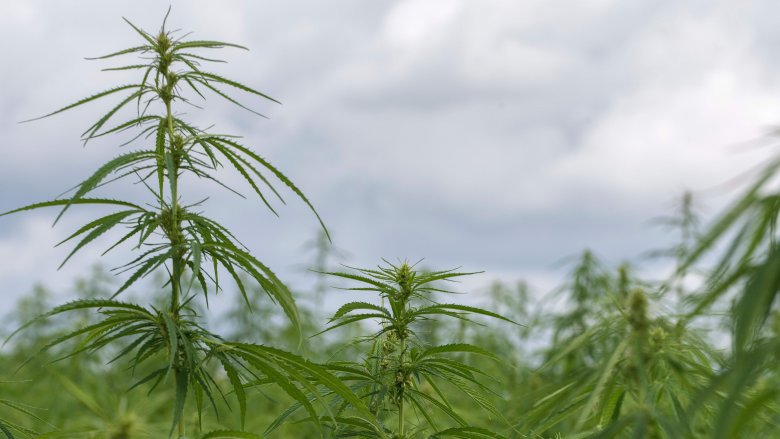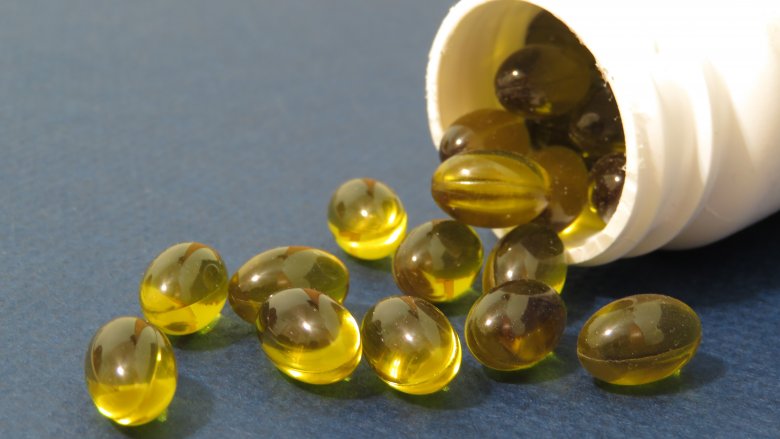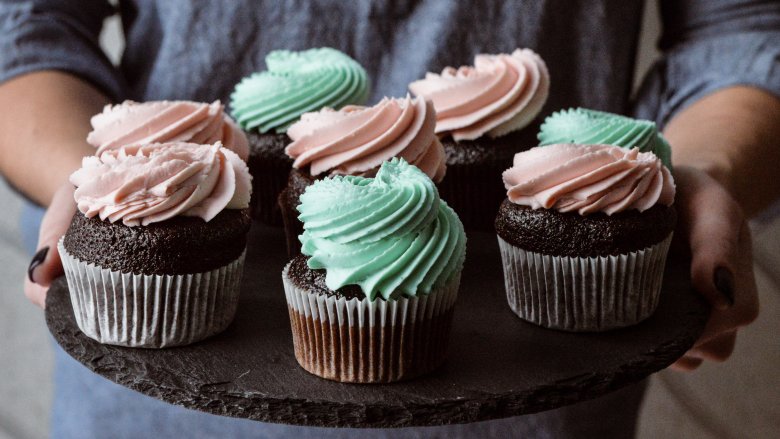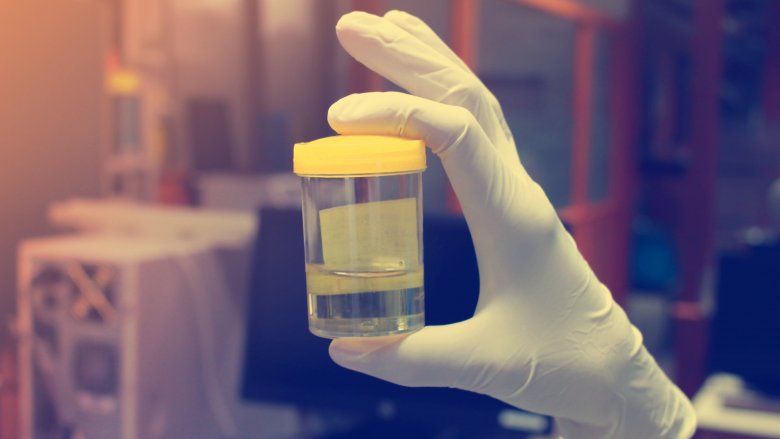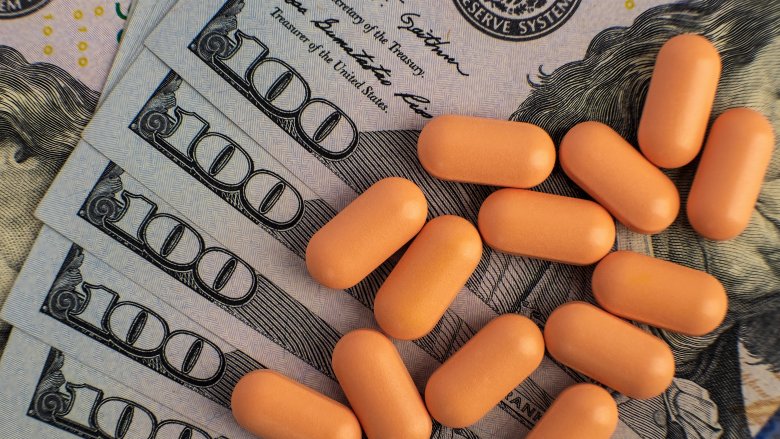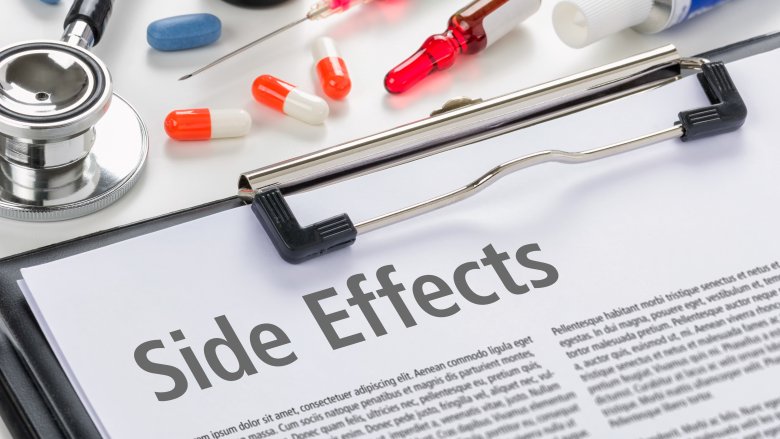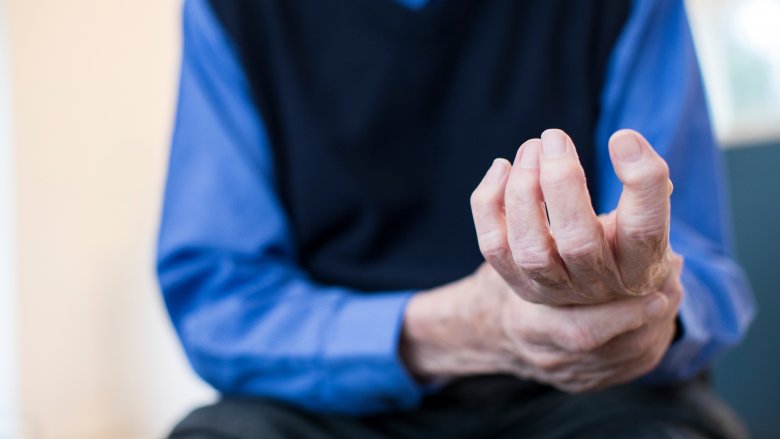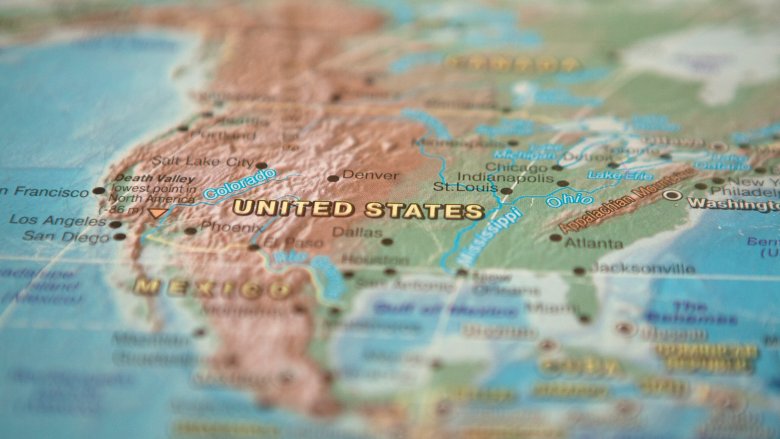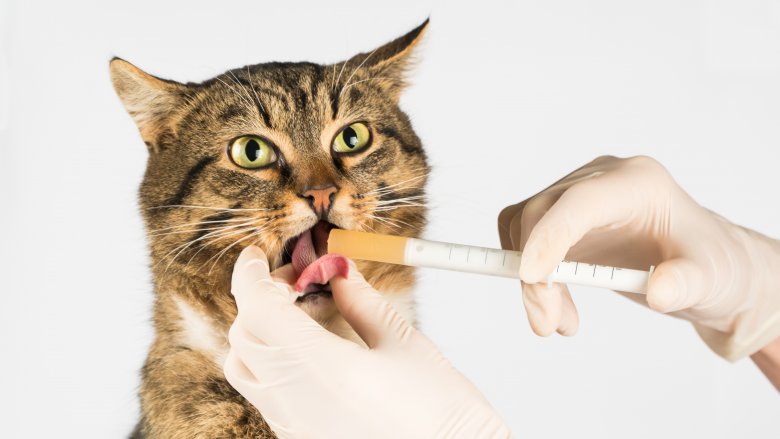The Biggest Myths You Believe About CBD
You've probably heard CBD alternately described as a miracle substance with the potential to cure all the world's diseases and also bring peace to the entire universe, and as the thing that will lead to the downfall of the human race. Or maybe less groundbreaking/catastrophic predictions that somehow still seem to be blown way out of proportion.
If you haven't heard anything about CBD, it's probably because this is the first time you've been on the internet, ever. So for those who are not familiar with the buzz, cannabidiol (or CBD) is a cannabis derivative that's widely used as both a health supplement and a food additive. CBD is found in hemp and marijuana, and that pedigree has turned it into one of the most discussed and most misunderstood substances on the American market.
So, what is the real truth about CBD? Is it a wonder drug or a snake oil? Is it legal or illegal? And most importantly, should you feed it to your dog? Here are some of the most often-repeated myths about this mysterious substance.
CBD gets you high
So let's just think about this one for a second. If CBD could get you high, is there any way on God's green Earth that the federal government would allow it to be sold freely on the internet? That's a hard "no."
According to Harper's Bazaar, CBD doesn't contain any psychoactive properties. THC, the compound in marijuana that gives users the munchies and makes them feel like binge watching every single episode of I Love Lucy is a good idea, is not present in CBD oil. In fact, CBD can actually counter the effects of THC on the brain, which is kind of the opposite of what you want if your intention is to get high and eat a lot of chips. So, if you think that CBD is somehow the homeopathic industry's clever way of getting psychoactive drugs into the hands of consumers, you're probably going to be disappointed. CBD is a health product, not an illicit drug.
For back pain and anxiety-related sleep disorders, yes, you could try CBD. For eating a whole bag of Doritos solo and watching otherwise intolerable television on Netflix, well, you might want to move to a legalized marijuana state for that one.
CBD is made from marijuana plants
When most people hear the word "cannabis," they only think of one plant: marijuana. That's because until recently, marijuana was the only version of cannabis anyone ever talked about. But marijuana is a part of a broad family of cannabis species, which also includes its more conservative cousin, hemp. According to The Motley Fool, marijuana and hemp both come from the cannabis sativa family, but they're two very different plants. They don't even look the same — marijuana is sort of squat and dumpy with wider leaves, while hemp is taller and stalkier and has shiny leaves.
The most abundant chemical compound found in marijuana is THC, which is the chemical that causes that characteristic high. Some marijuana varieties can have THC levels as high as 30%. Hemp has THC in it, too, but at much lesser levels — usually around .3%. So hemp has traditionally been used more for industrial applications, like making rope or fabrics sold exclusively to hippies at overpriced organic markets.
Both plants contain CBD, though, and you can obtain CBD oil derived from marijuana if you live in a state where marijuana is legal. But most of the CBD oils that are sold freely online or in specialty shops are derived from hemp, mostly because hemp-derived CBD isn't subject to the same state-to-state restrictions.
Hemp farming is illegal in the U.S.
It is true that hemp has had a very embattled history in the United States, where for years the people in charge of everything have been too dumb to understand the basic difference between a psychoactive plant and a non-psychoactive plant. Let's just put it this way — banning hemp because it's in the same family as marijuana is basically the same logic as banning tomatoes because they are in the same family as deadly nightshade (yes, they are).
So for a long time, farmers could not grow hemp in America for industrial purposes like making rope and helping hippies feel superior to everyone. Then, the 2014 farm bill partially legalized hemp — under the new law, it could be grown for research purposes, but if you wanted to use it to make rope or Grateful Dead t-shirts, you still had to import it.
Then the 2018 farm bill at long last legalized industrial hemp, which opened the doors for its cultivation but unfortunately kept CBD as kind of a gray area. According to MarketWatch, the Food and Drug Administration still considers CBD a drug, so the FDA gets final say over products containing CBD. The law does remove CBD from the controlled substances list, although it's hard to say exactly what good that will do if the FDA still gets to lord over everyone who has anything to do with making and selling the stuff.
CBD is regulated
Based on the whole "regulated by the Food and Drug Administration" thing, you'd think that CBD would be pretty tightly controlled. And in some ways it is. For example, the FDA explicitly prohibits CBD manufacturers from making health claims about their products. You can bottle and sell CBD oil with the intention of selling it as a pain reliever, but you don't actually get to say, "This is a pain reliever."
In other ways, CBD is weirdly really unregulated. According to The Atlantic, CBD "exists in a confusing state of quasi-legality," so there aren't any labeling requirements or composition standards for manufacturers. That means that when you buy a bottle of CBD oil, you don't really know how much of what's in that bottle is really CBD, nor do you really know what an effective dose might be for that particular product. Worse, some products sold as CBD oil, when tested, didn't contain any CBD oil at all.
"It's actually really hard to get pure CBD," Esther Blessing, a CBD researcher from New York University Langone Health told the Atlantic. "It's really expensive, and there's a limited number of high-grade producers across the world." And since the minimum effective dose is around 300 milligrams, consumers who don't buy the right product will end up with a vial of something that really is snake oil, at least in the metaphorical sense of the word.
CBD is a legal food additive
Now that hemp is legal, it follows that CBD oil is legal, too. That means that bakeries, restaurants, and coffee shops are free to add it to their cookies, cocktails, and lattes without fear of legal consequences. But no! The FDA still controls what companies get to do with CBD, remember, so that shop that makes the awesome CBD cupcakes is probably not doing it legally.
According to The Atlantic, the FDA gets especially pouty when companies add CBD to food and drink, so much so that in some places they are cracking down on brownies and cupcakes, and definitely not eating any of that confiscated contraband. In New York City, the Department of Health maintains that because CBD has not been deemed "safe as a food additive," no one gets to put it in food that's offered for sale to the public. Restaurants caught selling CBD treats will have to pay a fine of up to $650. Which is a lot for the average cupcake eater, but you know, at $5 a cupcake that's really only 130 cupcakes. Just as an aside.
Still, nothing is stopping you from baking your own delicious CBD treats, just so long as you're not selling them at your kid's bake sale or something.
CBD won't show up on a drug test
CBD isn't a marijuana product and it doesn't contain THC, so you can use it to treat the lower back and foot pain you're going to end up with after you've spent a whole day dropping off resumes around town. But according to Forbes, that's a terrible idea, because if one of those companies loves your resume and decides to give you a pre-hire drug test, you might fail it just based on your choice of pain reliever.
Granted, the risk is pretty small, but there have been cases where CBD oil seemed to be responsible for a failed drug test. In one example, a woman in Atlanta Georgia was told that she'd failed a pre-employment drug screening even though she'd never been a marijuana user and had only used CBD oil for two weeks prior to the test.
Hemp doesn't contain as much THC as marijuana does, but trace amounts can end up in any CBD oil. Now, THC in those minute quantities is unlikely to trigger a positive drug test result, but "unlikely" is hardly a 100% guarantee. So yes, there is a slight possibility you could lose your dream job if you take CBD. Your risk, of course, is directly proportional to how badly you wanted the job in the first place — if it's flipping burgers or cleaning dog kennels, your chances of a positive result are probably pretty close to zero.
CBD is addictive
One of the weirdest myths about CBD oil is that it's addictive, and once you start using it you're married to that $120 bottle for the rest of your life. It's a weird thing to say, because most CBD products don't come from marijuana and what's more, marijuana isn't even addictive, at least not in the same way that heroin or alcohol are addictive.
Don't misunderstand — people can develop a psychological dependence on marijuana, which does fit the clinical definition of addiction, but according to Psychology Today, people who abruptly stop using marijuana don't develop the profound physical symptoms that people who abruptly quit opiates or alcohol will develop. Instead, marijuana users will experience things like a slightly elevated pulse, irritability, and substantially lower consumption of Doritos.
What's addictive about marijuana is the high. That's notably absent from CBD products, so CBD users don't have to worry that their use of the product will become compulsive. As a plus, CBD users save on their monthly Doritos bill, so the benefits just keep on coming.
It has no side effects
Now that you're thinking, "This thing is a wonder drug!" it's time to rein it all back in for a second. There is a popular misconception that just because something is a natural, it must also be safe and effective, and that's not always true. Don't forget, botulism is also totally natural, and you wouldn't want to buy any of that in a bottle of oil.
According to Harper's Bazaar, CBD oil can have side effects, and what's especially scary is that you won't find them listed on the drug insert, because CBD products don't have to have a drug insert. But researchers say that CBD may interfere with some over-the-counter medications, and worse, that it might change the action of prescription medications like antidepressants. And based on the research, when it comes to side effects, taking CBD is not exactly the same as popping a couple of Tylenol. Some studies have found that CBD users can experience dizziness, diarrhea, anxiety (which is weird for a product some people take to combat anxiety), drowsiness, mood swings, and perhaps worst of all, changes in appetite. Maybe money saved on Doritos is just too much to ask after all.
CBD is primarily a pain reliever
A lot of people use CBD as a pain reliever. According to Shape, research has suggested that it can help control neuropathic pain and chemotherapy-related pain, so it's not a huge leap from there to imagine that it might help with other kinds of pain, too. But that's not the only thing CBD can do — it actually has a rather long list of therapeutic benefits.
Now you're skeptical, because any substance that can be used to treat that many different ailments can usually only be found in the "natural medicines" section between the diet pills and the non-GMO powdered unicorn urine, which basically means it's modern America's version of snake oil. But CBD is different, because its long list of therapeutic uses are actually proven. That's right, we said "proven." By actual science.
The FDA recently approved a CBD-derived drug for the treatment of pediatric seizure disorders, and research has shown promise for other applications, too. CBD can be helpful for anxiety and mood disorders, and some doctors call it "a legitimate antipsychotic." It can also help with insomnia and acne. Down the road, it could even be used to treat chronic diseases like Crohn's and inflammatory bowel disease, and patients with degenerative diseases like Alzheimer's and Huntington's.
It's legal in all 50 states
Since the passage of the 2018 farm bill, you'll hear a lot of people say that CBD is now legal in all 50 states. That's not entirely accurate, though — it's maybe more accurate to say that it's legal-er than it was before the 2018 farm bill.
According to Matador, CBD derived from a hemp plant (which contains a concentration of CBD not more than .3%) is essentially legal everywhere, with one caveat — it has to be grown by a licensed business that's received federal and state approval. Which excludes most of the CBD oil on the market today. And CBD is not approved for use as a food additive, as we've already established, which means it's legal but not totally legal for all applications.
Also, the farm bill did remove hemp from the list of controlled substances, which means it's legal under federal law. But states are also allowed to pass tighter restrictions, if they decide that CBD is too freely available or they're pissed off about the lines at Whole Foods or something. In Idaho, for example, the only CBD allowed must have 0% THC, instead of the .3% allowed under federal law. In Nebraska, CBD is just flat out illegal. If you were thinking that the stuff sounds like a good idea, it's best to read up on the laws in your state before you place that $120 Amazon order.
CBD is proven safe for pets
Just about every high-end natural health remedy, legitimate or otherwise, eventually ends up in someone's poodle. That's because the people most likely to use natural health products are the same people who visit doggie cafes, send their pets on expensive solo vacations, and feed them only Blue Buffalo dog food (which is evidently caviar for dogs, guessing by the price tag). People who can afford the best for Fido will do things like buy CBD to help treat doggie anxiety, arthritis, and Munchausen by puppy syndrome. That last one's not officially a thing, but let's face it — no one would be surprised to find out that people are giving CBD to their dogs just so they can tell other people they give CBD to their dogs.
But is CBD really good for pets? Some people say it is — according to The Detroit Free Press, there is plenty of anecdotal evidence that dogs suffering from anxiety or arthritis feel better after eating CBD-laced dog treats. But the American Veterinary Medical Association (AVMA) isn't ready to green-light the stuff yet. There haven't been a lot of studies into animal use of CBD, and some CBD products designed for human consumption may contain dosage amounts that are unsafe for small animals, as well as extra ingredients that could be toxic.
Some veterinarians might stray from AVMA recommendations, though, so the bottom line is that consumers should consult a veterinarian they trust before trying CBD products on animals.
